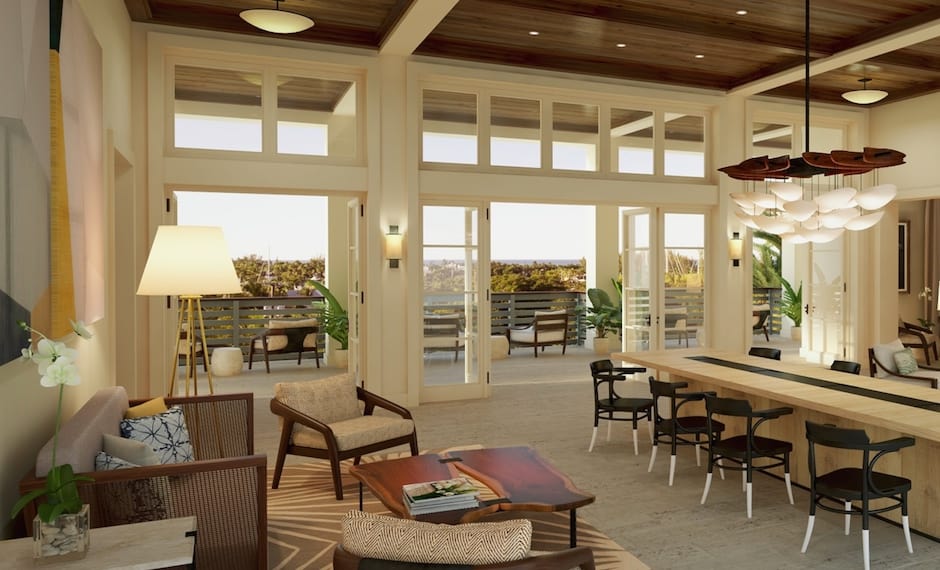“Hotels are a place where people can live and pass through and feel. I find them highly motivating and highly creative.” Alexandra Champalimaud
Grand hotels are the pillars upon which the contemporary hotel industry was built. But these days, while there’s plenty of room those refreshed old dames with their modern facelifts, the notion of anything strictly defined as “grand,” feels outdated and restrictive. Formality has been removed from so many segments of our lives, from what we wear to work, how we address higher ups, to the way we entertain, with casual being seen as more fun, and plates carefully mixed and matched preferred over Wedgwood patterns. The food we eat: the healthier, the more mashed up, the better, has replaced white table clothes and heavy sauces, and hotel bars are now intended for co-mingling between locals and guests, with a strong focus on community and culture, instead of a suspended reality. The term Grand, has become more of a definition of a category or style, than something to aspire to. Authenticity and accessibility are the buzzwords of this decade, but they don’t necessarily exclude the grand. For, what is more authentic than the rich history and studied service of say, the Savoy, or The Dorchester, or the Peninsula? But how to make long-standing legends accessible? It takes a deft-handed design team like Champalimaud to retain a property’s sense of importance, whilst eliminating and revisioning the intimidating, celebrating our more egalitarian way of life.
Led by Alexandra Champalimaud, the eponymous, New York-based design team is delivering multi-functional, flexible spaces that reflect contemporary needs, without sacrificing aesthetics. Take their recently completed, 30-room boutique hotel in the Bahamas, The Island House (featured). “Our goal was to create a residential hotel experience with presence, where guests can move fluidly throughout the property, seamlessly blending indoor and outdoor living spaces. There’s a true sense of comfort, relaxation and place,” Champalimaud says. Nothing’s more relaxing or comfortable than an intimate cinema on-site, with lounge chairs, armchairs and sofa’s as seating.
Champalimaud’s work on the four-star flagship Delta House in Toronto, embraces the notion of a modern world where design is democratic. Blonde oak and white furnishings amid light, open spaces and welcoming, deep bathtubs, are complemented by vibrant art, rather than cookie-cutter uniformity. The design principle points out the importance of incorporating local attributes. “The strong art culture in Toronto provides much of the inspiration for the hotel’s design. We wanted there to be a fresh modern and informed vibe, which when anchored with the expressive and newly commissioned art pieces, together they create a dynamic and vibrant space.”
Champalimaud has been reimagining and designing both grand and contemporary spaces with timeless principles for some time, having earned her bona fides at two of Manhattan’s most famous residences: The Pierre and The Waldorf Astoria. Her work is regal mid-Century sophistication, juxtaposed against minimalist modernist living. Champalimaud’s trademark is unpretentious accessibility mixed with the fine balance between statement, and the understated. It’s her clever use of carefully blended palettes against clean lines and an acute sense of spatial awareness that has set her apart. Champalimaud possesses an ability to move from contemporary grand design like the New York Palace to a more contemporary affairs like Topping Rose House in Bridgehampton, New York or The Bavarian Chalets in New Mexico. Within her skill set is the ability to take grand hotels and make them meaningful to today’s traveller, as she did with The Dorchester, one of the most well-known addresses in London’s Mayfair.
This is where I meet the master designer herself. Absent of ego, Champalimaud is warm, and sincere. Her attire is hip and effortlessly elegant. As evidence, she orders champagne, and suggests a selfie. A rich background in the history of art and architecture has helped shape Champalimaud’s style, which includes a pair of Corbusier-esque eyeglasses. The designer is culturally educated – born in Lisbon, raised and educated in both Switzerland and England. She founded her design agency in Montreal and was inducted into the Interior Design Hall of Fame in 2012.
Beyond professional achievements, Champalimaud is devoted to family. As a single mother in Canada, she instilled in her children a sense of drive and ambition. One of them went on to establish UK-based online spa-booking service, Wahanda.
Children are great practise for understanding clients, who typically present multiple challenges, including cautious finance directors, spiralling expectations, and architectural constraints. Champalimaud’s approach is based on careful consideration of any and all eventualities – how and why a room will be used, and for whom. Will this be a room where headlines are written, or will it be a room where sepia-toned photographs will be taken and lovingly reminisced over for years to come. Or perhaps neither? The designer extracts a core philosophy and translates it into a meaningful vision, which is honest, relevant and consistent with a brand’s values.
She once said, “You have to make things dramatic but yet still appeal to the guest that comes here every month or year”. But Alexandra, however, is less preoccupied by a story that she personally wishes to tell, instead wishing to sing in harmony with the space’s own heritage and future – accounting for mood, tone and – perhaps most importantly – what the space needs. Champalimaud emphatically states that culture, narrative and soul are the most crucial elements in reimagining any space, whilst staying a step ahead of the curve. It’s an astute observation from a designer who’s had such a profound input into the modern world of grand hotels of today like Hotel Bel-Air in Los Angeles. Her Hall of Fame Induction featured the following statement: “Hotels are a place where people can live and pass through and feel. I find them highly motivating and highly creative”. But it’s her humour and positivity, her courage and her infectious youthful energy that makes her so unique amongst her peers. We’re just waiting to see where she turns her hand next.









